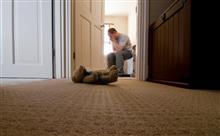Caroline White
Wednesday, 21 August 2019
Doctors may be telling parents too late that their child is near death, suggest the results of a small survey*, published online in the journal BMJ Supportive & Palliative Care.
National guidance is needed for doctors on how and when to give parents bad news, so that they can be properly prepared, say the researchers.
Open, accurate, and timely information about terminal illness and associated life expectancy are key tenets of high-quality palliative care. But previous research suggests that doctors often find it difficult and distressing to discuss end-of-life issues, they explain.
The researchers scrutinised a national Danish register of child deaths between 2012 and 2014 to find those who had died of a terminal illness: 402 out of 951.
A modified version of a validated questionnaire about the loss of a child was sent to the bereaved parents together with an explanatory leaflet about the nature of the study.
The questionnaire contained 122 questions designed to probe parents’ perceptions of the type and quality of communication with healthcare professionals throughout their child’s illness and imminent death.
In all, 136 mothers and 57 fathers completed the questionnaire, representing the parents of 152 children who had died of a terminal illness between 2012 and 2014 (response rate of 38%). Over half the children (56%) had died within the first year of life.
More than half the parents (59%) were told their child’s illness was terminal by a doctor. For around a third (30%) this was imparted immediately after the child’s birth.
But one in seven (15%) said they received this information in the last 24 hours of the child’s life. And around one in 10 (12%) said they weren’t told at all.
A similar proportion (11%) said they didn’t realise their child was going to die until the event itself. Around one in five (19%) only realised their child’s death was imminent a few hours beforehand.
Three out of four of the parents were satisfied with the information they were given by clinicians about their child’s illness. Most felt the same (80%) about their child’s treatment.
But the information given about how the child’s illness and treatment would affect their physical and mental health was judged inadequate by one in three (33%) and nearly half (48%), respectively.
A third (34%) of the parents weren’t told how to access end-of-life care, while four out of 10 (40%) didn’t know what to do in the event of an emergency.
Nearly all (98%) of them said that doctors should let parents know as soon as it was clear that all curative treatment options for their sick child had been exhausted.
Most parents (79%) felt the information about the terminal nature of their child’s illness had been provided in a timely manner. But more than four out of 10 (42%) said they were told too late that their child was about to die.
Nearly a third (31%) said they were unable to say goodbye to their child as they would have liked. And more than four out of 10 (43%) said that their child’s death had come as “a shock.”
This is a small observational study, and the distress of caring for a dying child might have affected parental recall, the researchers point out.
“Healthcare professionals are exposed to great challenges in communicating with parents about their children’s life limiting illness and imminent death, and even though [they] strive to communicate effectively with the children and their parents, several barriers on the sides of both parents and professionals, may hinder even the best of intentions,” they write.
“However, the present study clearly demonstrated that the parents’ need for information and support were not sufficiently met, and the study results may raise awareness of the importance of providing improved education and training for healthcare professionals working with children with life limiting diagnoses and their parents,” they conclude.

